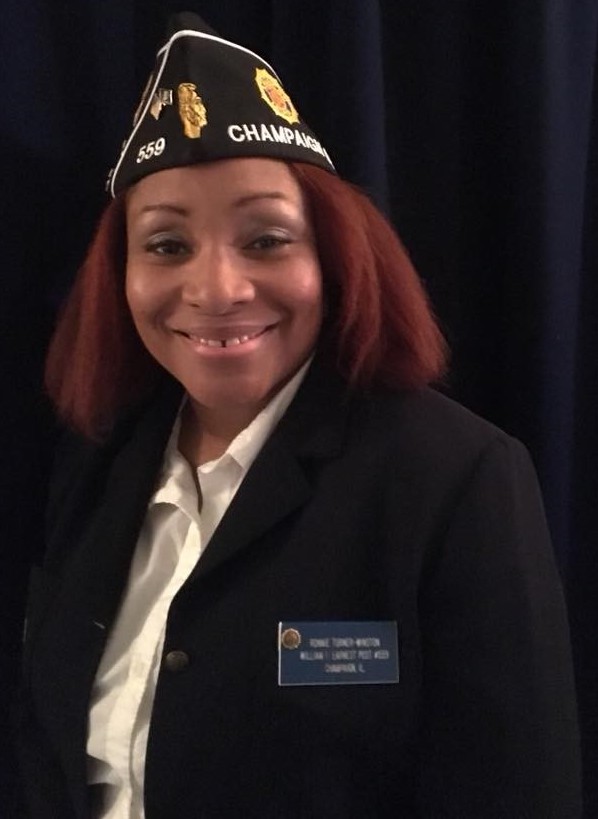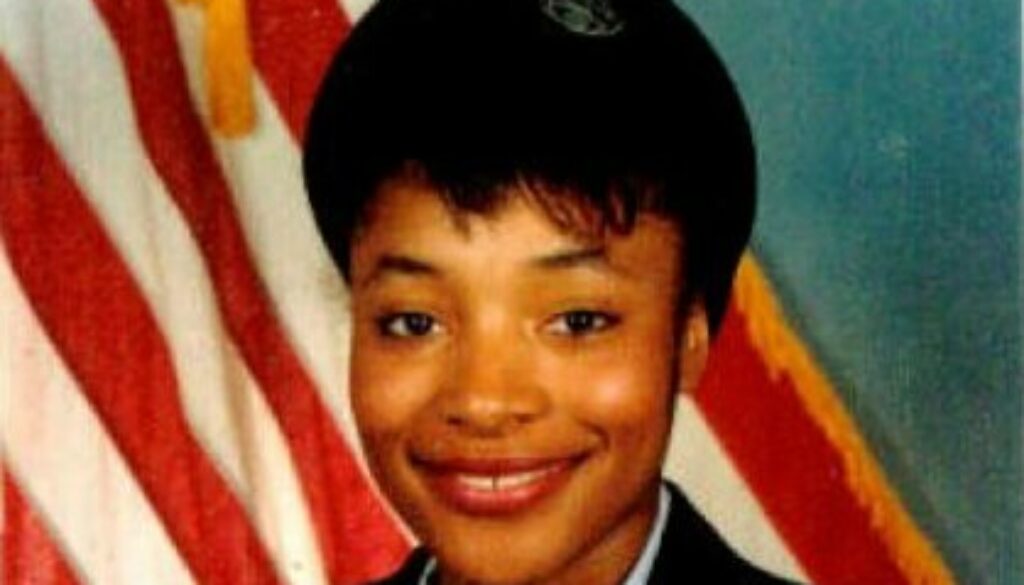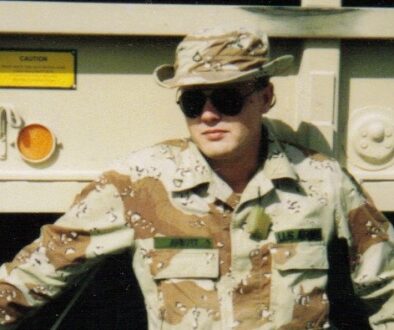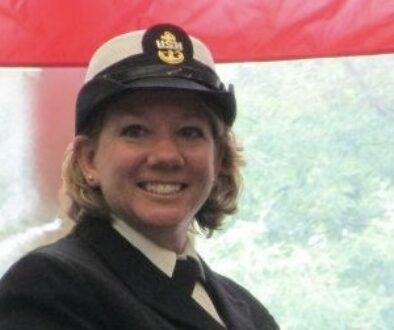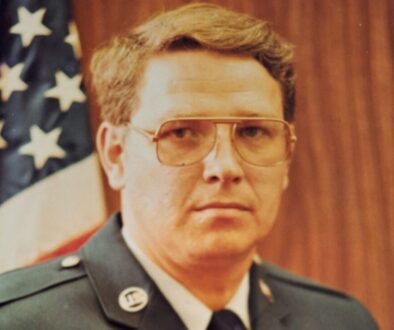Airman Ronnie Turner-Winston, U.S. Air Force, Lifetime of Service
Airman Ronnie Turner-Winston, U.S. Air Force, is the kind of veteran I have always admired. She enlisted in the Air Force, served her country in time of war, then returned to civilian life where she serves as a role model for everyone she comes into contact with. She had me laughing and smiling as she told me about her Air Force experience, and I think she will have you doing the same. She will also make you feel proud. This is her story.
Ronnie was born and raised in Washington, D.C., by a single mother. It’s clear from Ronnie’s description her mother is her hero. Her mom had Ronnie while she was still a teenager, which meant her mother had to leave high school during her junior year. Her mother was determined, though, to be both a good mother and a good provider, so she earned her GED and then took classes at the University of the District of Columbia. Ronnie jokes that she should have been awarded the same degree her mother received because she attended 90% of the classes with her mom since her mom couldn’t afford day care. She remembers the look on the faces of her mom’s professors at the start of every semester when her mom would bring her to class for the first time. The professors would scowl, but Ronnie’s mom promised Ronnie would be quiet during class, which she was. This was the beginning of Ronnie’s lifelong love of education.
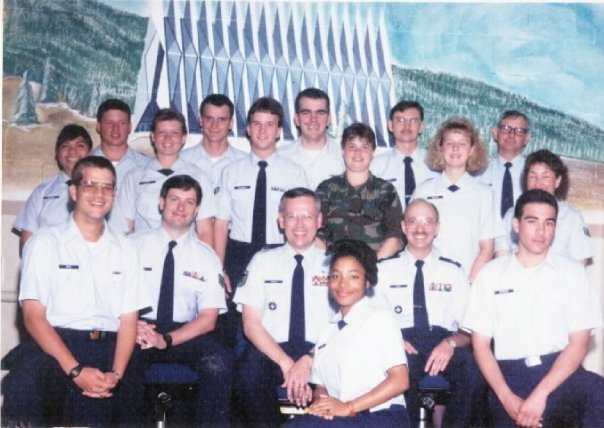
When Ronnie was in high school, her family moved from Washington, D.C., to Riverdale, Maryland, where she attended Bladensburg High School. When she reached the end of her junior year, she realized she had no plan for the future. Her mother hadn’t applied to colleges while in high school, so she couldn’t advise Ronnie on what she needed to do. Ronnie did take the SAT, but not the next step of applying to colleges for admission. Ronnie needed someone to point her in the right direction—that’s when the military recruiters stepped in.
Ronnie took the Armed Services Vocational Aptitude Battery (ASVAB) and scored in the upper 90th percentiles. Recruiters for all four military services reached out to her, but it was the Air Force that caught her eye. The Air Force said they were very selective and that won Ronnie out. She enlisted in the delayed entry program and waited for her active duty report date to arrive. In the meantime, she graduated from high school and took classes at the University of Maryland during the fall semester. After she completed the classes, her recruiter began to pester her to provide him with a copy of her transcripts. At age 17 going on 18, obtaining a copy of her transcripts was not a priority for her, so she never got around to it. A few short months later, she would learn why it should have been a priority.
Ronnie reported for active duty in January of the year after she graduated from high school. She boarded an evening flight from Washington, D.C., to San Antonio, Texas. This was the first time she had ever flown in an airplane alone, and she remembers being in awe when she arrived late in the evening in San Antonio. She thought the airport was so cool, she and a couple of other new recruits she met on the flight walked around just soaking it all in. What they didn’t know was that while they were walking around, the bus to Basic Training at Lackland Air Force Base (AFB) arrived and the Training Instructor (TI) had to hold up the bus waiting for them. When they finally made it to the bus, the TI yelled at them for being late and told them no one had authorized them to walk around. With no prior exposure to the military, Ronnie’s only thought was “what have I gotten myself into?”
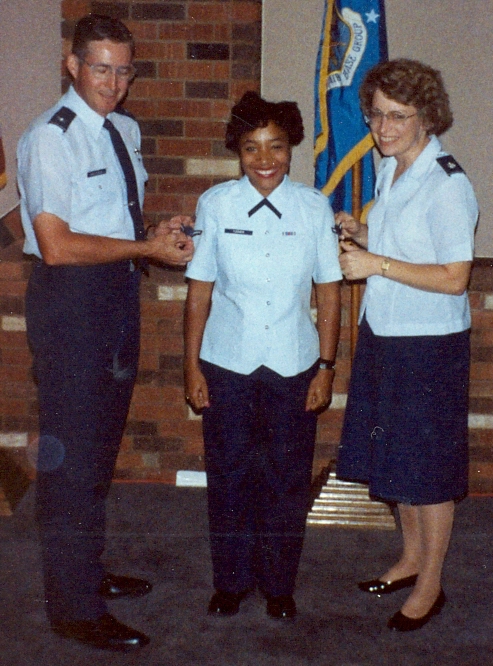
The bus arrived at Lackland AFB around 2:00 a.m. and Ronnie was exhausted. The TI explained on the bus that they would be going to the chow hall to get something to eat. He also said recruits would be expected to drink two glasses of water with every meal to help protect them from the heat in San Antonio. Still not grasping she was no longer a civilian, Ronnie asked the TI if she could skip the chow hall and go directly to her barracks to get some sleep since it had been such a long day. This resulted in the TI recalibrating Ronnie for a second time, and she hadn’t even started in-processing yet. In the end, she drank her water and got checked in, beginning her tour in the Air Force.
Ronnie remembers an Asian-American woman in her flight of trainees who had long, beautiful black hair. It was so long, Ronnie estimated it had to weigh at least five pounds. The Air Force wouldn’t make her cut it as long as it remained neatly styled on her head. The problem was, it was so heavy it kept falling off—sometimes during formation—so Ronnie and some of the other women in her flight tried to help style the woman’s hair so it would stay in place. Once Ronnie even broke formation to help the woman put her hair back in place. As you would expect, all of these instances resulted in angry TIs yelling at those involved, but the real result was increased camaraderie in the unit as the flight pulled together to help one of its own.
Ronnie hadn’t gotten any commitment before she enlisted regarding what job she would do. When the job specialty discussions began, she gravitated toward becoming a chapel manager. She had grown up in the church so it was a natural fit for her. When she learned she could also have time off during the week because she would work weekends at the chapel, she was all in. So, after graduating from Basic Training, Ronnie headed off for eight weeks of Chapel Management School at Keesler AFB near Biloxi, Mississippi. Ronnie made lasting friendships at Chapel Management School and still maintains contact with her classmates to this day.
Ronnie graduated from Chapel Management School as an Airman Basic (E-1). Had she provided her University of Maryland transcripts to her recruiter, she might have qualified for a higher paygrade and more money, but it was too late for that now. She reported to her first duty station at the chapel on Wright-Patterson AFB near Dayton, Ohio. Her first choice was Andrews AFB just outside of Washington, D.C., but Wright-Patterson was still a good location because her stepfather’s family lived in Dayton. Shortly after Ronnie arrived, a junior chapel manager at Chanute AFB in Rantoul, Illinois, wanted to swap duty stations with Ronnie, which the Air Force allowed. Thinking a few additional miles from Washington, D.C., wouldn’t matter, Ronnie accepted the transfer to Chanute.
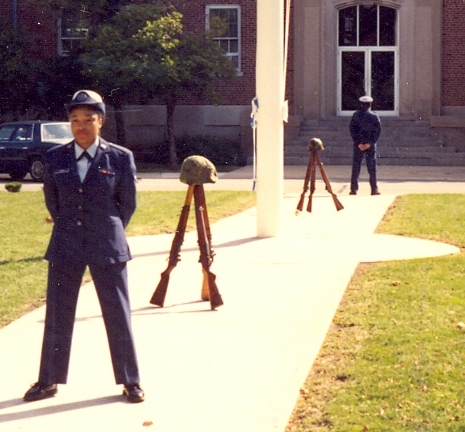
Ronnie loved her assignment at the Chanute chapel, which was a very close-knit community. She especially enjoyed volunteering for any ceremonial duties like parades or standing special guard duty, but there were much more mundane duties involved, as well. For example, one of the first things she was told to do was to make the weekly deposit at the base bank. Much to everyone’s surprise, Ronnie said she couldn’t do it because she didn’t have a driver’s license. For the next two weeks, Father Raul taught her how to drive using his car, which was stick shift. Once Ronnie learned to drive, Father Raul even helped her get her first car. The next surprise came when she was asked to shovel snow—she had never had to do that in Washington, D.C., where it snowed so infrequently and melted so quickly that shoveling was never an issue. She learned quickly in Illinois, though, that shoveling snow around the chapel was part of her job description.
In late 1990, war came to the Middle East when Iraq invaded Kuwait. Having grown up during the relative peace of the Cold War, Ronnie hadn’t expected the United States to be involved in an armed conflict, although the U.S. intervention in Panama in 1989 certainly alerted her to the possibility. Yet, when Desert Storm came, Ronnie was the first person in her chapel to get orders. She deployed in support of Desert Storm for approximately two-and-a-half months. It was an experience she will remember for the rest of her life.
After the Gulf War ended, Ronnie returned to the chapel at Chanute, where she continued her duties. When she was nearing the end of her initial four-year enlistment, she was asked to reenlist for another four years so she could be given orders. Ready to settle down, Ronnie decided not to reenlist and instead took the opportunity for an early out. She was discharged in September 1993 after serving over three years on active duty.
Once back in the civilian world, Ronnie completed cosmetology school. Although she enjoyed the work, she changed jobs and took a position in Human Resources at Parkland Community College in Champaign, Illinois. Her Parkland job re-opened the doors to her education. She went on to earn her Associate’s Degree from Parkland and her Bachelor’s and Master’s Degrees from Eastern Illinois University, all while raising her family. She loves learning so much, she is currently pursuing her Doctor of Education degree in organizational leadership with Grand Canyon University.
Ronnie has gone far beyond studying leadership—she practices it in the community every day. In fact, Ronnie believes everyone must take responsibility for supporting their community. For Ronnie, this means serving as the Adjutant for American Legion Post 559 and as a member of VFW Post 5520, and as the Veterans Affairs Representative for the Champaign County NAACP. She is also seeking to establish a local chapter of the National Association of Black Veterans (NABVETS). On top of all that, Ronnie is committed to her four children and two grandchildren, a commitment she reinforces by serving as an officer in both the Urbana High School and Middle School PTSAs.
Voices To Veterans salutes Airman Ronnie Turner-Winston for her outstanding service to our nation in the Air Force during the Gulf War and for her continued commitment to public service in the community. She is an outstanding role model, exemplifying duty and honor in everything she does.
If you enjoyed Ronnie’s story, please sign up for the Voices to Veterans Spotlight monthly newsletter by clicking here. Once each month, you’ll receive a new written veteran’s story and a new podcast directly in your mailbox. Best of all, it’s free and you can unsubscribe at any time.
